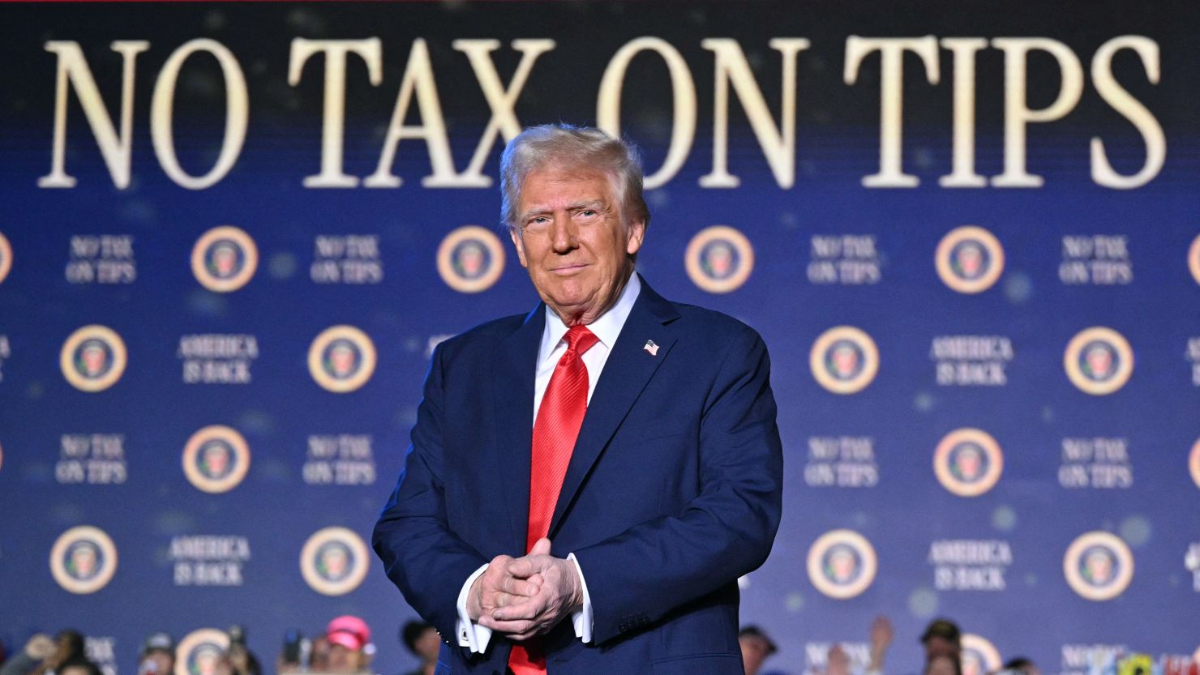Former President Donald Trump has made headlines once again with a bold economic proposal aimed at eliminating the federal income tax. This controversial plan, unveiled as part of his 2024 presidential campaign platform, has sparked widespread debate among economists, policymakers, and the public. Trump argues that eliminating income tax would lead to unprecedented economic growth, though critics warn of significant consequences for federal revenue and essential programs.
Understanding Trump’s Proposal
The proposal to eliminate federal income tax is rooted in Trump’s vision of simplifying the tax code and reducing the financial burden on American workers. Instead of income tax, Trump suggests alternative revenue streams, including an expanded consumption tax or tariffs on imports. The move, according to Trump, would empower American families by allowing them to keep more of their earnings while stimulating consumer spending and economic growth.
Trump’s team claims this proposal aligns with his reputation as a disruptor, willing to challenge traditional systems for the sake of economic revitalization. “The American worker deserves a government that lets them keep their hard-earned money,” Trump stated during a recent campaign rally.
Potential Benefits of Eliminating Income Tax
Supporters of Trump’s plan highlight several potential benefits. Eliminating income tax could lead to increased disposable income for millions of Americans, encouraging spending and investment. Proponents argue that this shift could boost consumer-driven industries, generate job growth, and reduce bureaucratic inefficiencies associated with tax collection.
Additionally, a simplified tax structure could appeal to businesses, potentially attracting more corporate investment to the United States. By removing income tax obligations, advocates suggest that the country could become a more competitive player on the global economic stage.
Criticism and Concerns
Despite its potential benefits, the proposal has drawn significant criticism. Opponents argue that eliminating income tax would create a massive federal revenue shortfall, jeopardizing funding for programs such as Social Security, Medicare, and national defense. According to estimates from fiscal policy experts, income tax accounts for nearly half of federal revenue, making it a cornerstone of the nation’s budget.
“Without a clear and viable alternative, eliminating income tax could lead to severe economic instability,” warned a prominent economist from the Brookings Institution. Critics also express concern that relying on consumption taxes or tariffs could disproportionately impact low- and middle-income households, as these taxes tend to be regressive in nature.
Furthermore, questions remain about the feasibility of implementing such a sweeping change. Transitioning from an income-tax-based system to an alternative revenue structure would require significant legislative action, likely facing resistance from both sides of the political aisle.
Historical Context and Feasibility
The concept of eliminating federal income tax is not entirely new. Throughout American history, various policymakers and economists have proposed alternatives to income tax, such as a national sales tax or flat tax. However, none of these proposals have gained sufficient traction due to concerns over equity, practicality, and revenue generation.
Trump’s plan marks one of the most high-profile attempts to revisit this debate in modern times. While his supporters view this proposal as a bold and innovative move, many experts remain skeptical about its long-term implications and practicality.
What’s Next?
As Trump continues to campaign on this platform, the proposal to eliminate federal income tax will likely remain a focal point of his messaging. Whether this plan gains legislative support depends on the political climate and the feasibility of crafting alternative revenue mechanisms.
For more detailed coverage on Trump’s economic proposals and their potential impact, visit Tax Foundation.
Conclusion
Donald Trump’s proposal to eliminate income tax is undoubtedly one of the most provocative economic ideas to emerge in the 2024 election cycle. While it promises significant benefits for American workers, its feasibility and potential consequences remain hotly debated. As discussions continue, the American public and policymakers will play a crucial role in determining whether this vision becomes reality.
Disclaimer – Our team has carefully fact-checked this article to make sure it’s accurate and free from any misinformation. We’re dedicated to keeping our content honest and reliable for our readers.








